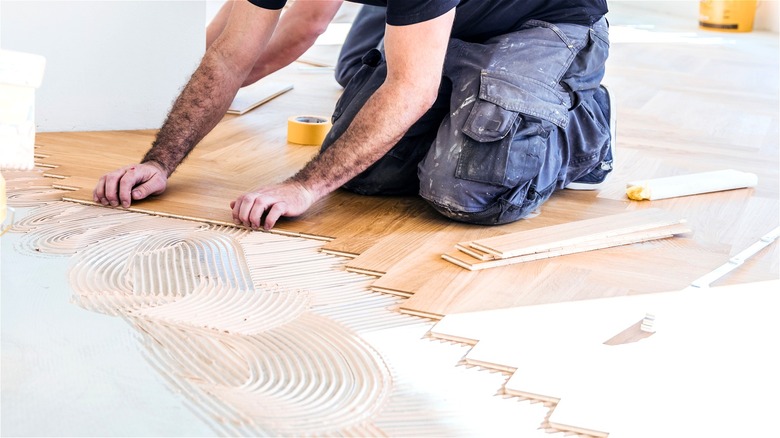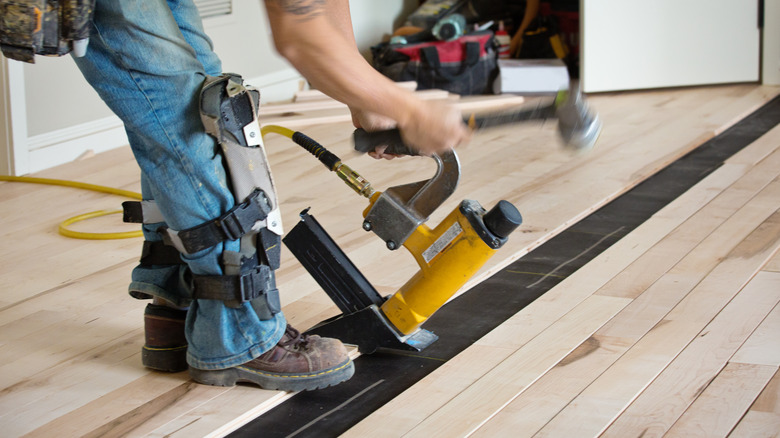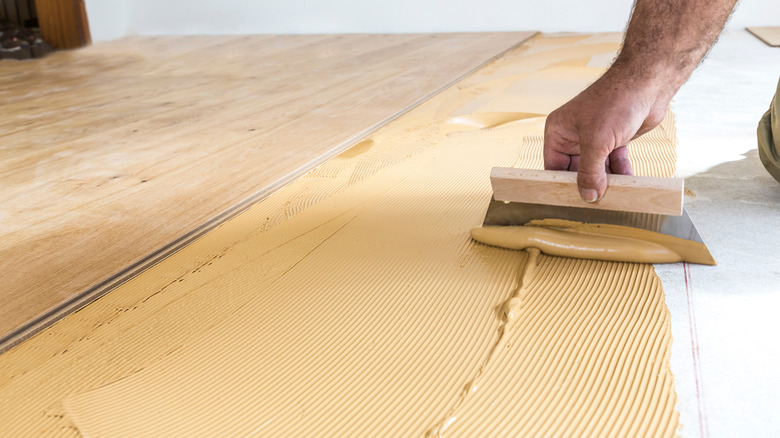Do You Need To Use Glue When Installing Hardwood Flooring?
There are many reasons why hardwood floors will always be the right choice for your home. If you're building a new place or sprucing up your current home with hardwood floors, the next big question after picking out your ideal hardwood floor type and material is how to put them in. You might wonder, "Should I glue my hardwood flooring?" The answer depends on several factors, like the type of subfloor you have, your (or your installer's) skill level, budget, and how quickly you need your flooring to be installed. Generally, you have three main installation options: nailing it down, gluing it down, or opting for a floating setup. Each installation method has pros and cons, and not every method may suit your situation.
If you're considering a floating installation — where you use neither glue nor nails — it's important to note that this method is typically suitable only for engineered hardwood floors. The major benefit of engineered hardwood floors is their easy installation, thanks to their "click-lock" or tongue-and-groove system that allows the planks to securely attach to each other without fasteners. This setup lets you install the flooring directly over the subfloor or an existing floor without glue. However, you can also choose to glue down engineered wood flooring to make the floor feel more solid and to reduce the risk of having squeaking noises. Floating installation isn't advisable if you're using solid wood; you should glue or nail it down.
Deciding how to install hardwood floors: to nail or glue?
When deciding between gluing or nailing, one of the things you need to consider before installing hardwood flooring on your home is the type of subfloor you have. You can choose between nailing or gluing your flooring down if it's wood. However, gluing is necessary if your subfloor is concrete or tile since nailing isn't an option. Nailing can be more favorable if your subfloor isn't even or if your household includes pets, active adults, or children, as nailed-down flooring tends to withstand wear and tear better and generally requires less maintenance than glued floors. It's also crucial to follow the manufacturer's guidelines during installation; not only does this ensure the job is done right, but it also maintains the warranty's validity.
Your skills are also a factor if you plan to DIY; proper adhesive application can be challenging for DIY newbies, while nailing is easier. If you're renovating your space, consideration is also essential. Using glue is slower because of the drying time, but nailing down your flooring lets you place back furnishings immediately after installation. Lastly, budget is also important. Gluing is more expensive due to the costs of extra labor cost (because it is the most labor-intensive) and the adhesive.
Benefits of gluing down your hardwood flooring
One of the main advantages of gluing down is the fact that this method applies to any type of subfloor. It's also considered the most stable installation method. This stability comes from the adhesive's elasticity, which allows the floor to contract and expand naturally with seasonal changes. Since each plank is securely glued to the subfloor, this method is also the most permanent among all the installation methods, making it an excellent choice for long-term flooring. Of course, this means that glued-down floors are more difficult to remove should you decide to replace them in the future. Additionally, if you live in a humid area, the glue acts as a vapor barrier, protecting your hardwood from moisture. Gluing down your wood floors also helps prevent excessive movement or shifting in response to changes in humidity levels, ensuring a more stable and durable flooring solution.


